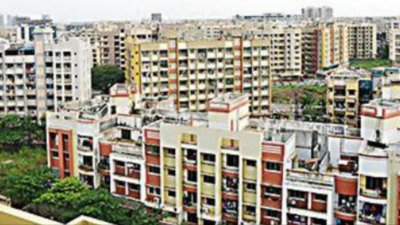- News
- City News
- guwahati News
- Gauhati Medical College Hospital study links dengue outbreak to ‘unplanned growth’ of urban areas
Gauhati Medical College Hospital study links dengue outbreak to ‘unplanned growth’ of urban areas

Irregular sanitation and water supply, propelling water storage for daily use, are main reasons behind surge in cases
GUWAHATI: A study by a team of microbiologists from the Gauhati Medical College Hospital (GMCH) had warned of a possibility of a dengue outbreak in Assam due to unplanned urbanisation three years ago. This year the warning has come true, especially for the hill district of Karbi Anglong.
The team, headed by the then associate professor of microbiology, Dina Raja, had underlined the need for the identification of high-risk areas in Assam to prevent future outbreaks of dengue through targeted interventions in its report, ‘Seroprevalence of Dengue Cases in a Tertiary Care Hospital’. But no initiative was taken to identify the high-risk areas.
Nearly 70% to 90% of the state’s total dengue cases in the last 10 years were reported from Guwahati. But this year the scenario has been different. Almost the same percentage of cases have been reported from Diphu, the headquarters of Karbi Anglong district. Assam has reported 954 dengue cases since November 1, with the majority of them from Diphu.
“We did not identify any place as high-risk area before the surge this year. We did not have any history of dengue outbreak in Karbi Anglong,” said senior health official and Assam National Health Mission executive director, Manoj Choudhury.
Irregular sanitation and water supply propelling water storage for daily use are being blamed. The occurrence of dengue cases in Assam is seen to be more in urban and semi urban areas.
The team, headed by the then associate professor of microbiology, Dina Raja, had underlined the need for the identification of high-risk areas in Assam to prevent future outbreaks of dengue through targeted interventions in its report, ‘Seroprevalence of Dengue Cases in a Tertiary Care Hospital’. But no initiative was taken to identify the high-risk areas.
Nearly 70% to 90% of the state’s total dengue cases in the last 10 years were reported from Guwahati. But this year the scenario has been different. Almost the same percentage of cases have been reported from Diphu, the headquarters of Karbi Anglong district. Assam has reported 954 dengue cases since November 1, with the majority of them from Diphu.
“We did not identify any place as high-risk area before the surge this year. We did not have any history of dengue outbreak in Karbi Anglong,” said senior health official and Assam National Health Mission executive director, Manoj Choudhury.
Irregular sanitation and water supply propelling water storage for daily use are being blamed. The occurrence of dengue cases in Assam is seen to be more in urban and semi urban areas.
FOLLOW US ON SOCIAL MEDIA
FacebookTwitterInstagramKOO APPYOUTUBE
Start a Conversation
end of article









